A dog and a cat, sleeping side by side, tails intertwined—it’s a scene that tugs at the heartstrings and defies the old tale that cats and dogs are born enemies. But what really happens when these famously different creatures grow up in the same home? Do they fight, bond, or simply ignore each other? The truth is far more fascinating, surprising, and sometimes hilariously unpredictable than most people imagine. If you’ve ever wondered whether your pets could become best friends—or sworn rivals—read on for the untold story of cats and dogs growing up together.
Early Introductions Shape Lifelong Bonds
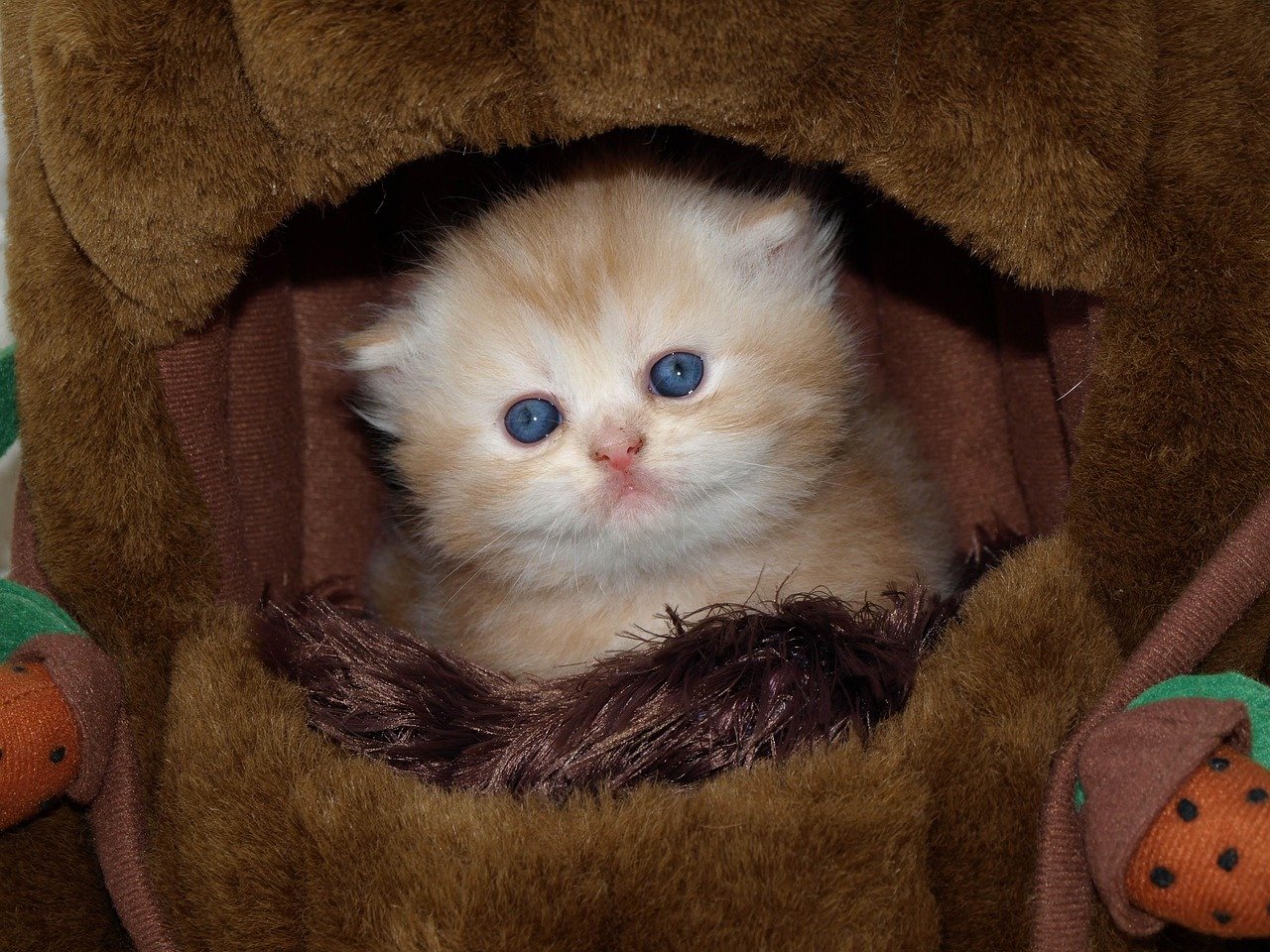
When puppies and kittens meet at a young age, their first impressions often set the tone for their relationship. Just like humans, animals are more open to new experiences and friendships during their formative months. These early encounters can be filled with curiosity, cautious sniffing, and playful pounces. Sometimes, the first meeting is awkward or even a little tense, but with gentle supervision, most young pets quickly learn to accept each other. Over time, these initial moments become the foundation for trust and companionship. It’s a bit like a childhood friendship—the earlier you meet, the stronger your bond can grow. So, for pet lovers hoping for harmony, starting young makes all the difference.
The Power of Socialization
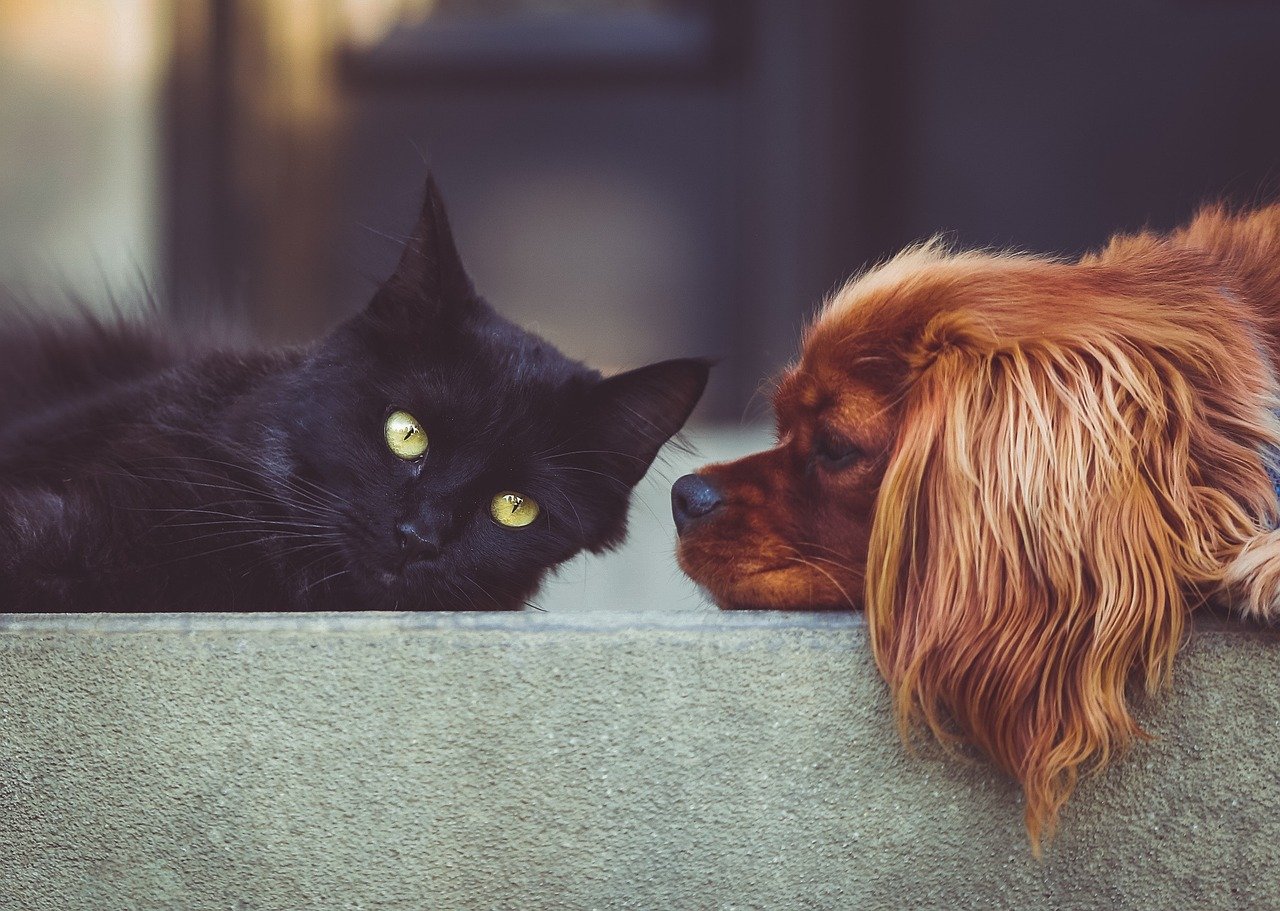
Socialization isn’t just a human concept—it’s crucial for pets too. When cats and dogs grow up together, they learn to communicate in ways unique to their shared environment. They pick up on each other’s cues, from a wagging tail to a twitching whisker. This ongoing learning process helps reduce misunderstandings and prevents conflicts. Pets that are socialized together often become more confident and less fearful of new experiences. It’s almost as if they form a secret language, a mix of meows and barks, that only they understand. Those early days of rough-and-tumble play or snuggling together on the couch create bonds that last a lifetime.
Breaking the Myth: Cats and Dogs as Natural Enemies

The old saying that cats and dogs can’t get along is rooted in stereotypes rather than science. When raised together, many of these so-called “natural enemies” become the best of buddies. Their differences in body language and play styles can cause confusion at first, but with time, they find ways to compromise. In fact, many pet owners are shocked to find their cat and dog curled up together or grooming each other like siblings. It’s a powerful reminder that friendship isn’t about being the same—it’s about understanding and acceptance. Growing up together gives cats and dogs the chance to break free from the myths, proving that even the most unlikely pairs can become family.
Learning Each Other’s Language

Cats and dogs communicate in very different ways. A dog wagging its tail might mean excitement, while a cat’s swishing tail might signal irritation. When these animals grow up side by side, they slowly begin to decode each other’s signals. You’ll see a dog pause before chasing a cat, waiting for an inviting pounce, or a cat gently tapping a dog’s nose instead of swatting. Over time, they develop their own unique ways of saying, “Let’s play!” or “I need space.” This shared vocabulary is built on patience, trial and error, and lots of observation. It’s almost like a pair of friends inventing their own secret handshake.
Playtime: The Ultimate Ice Breaker
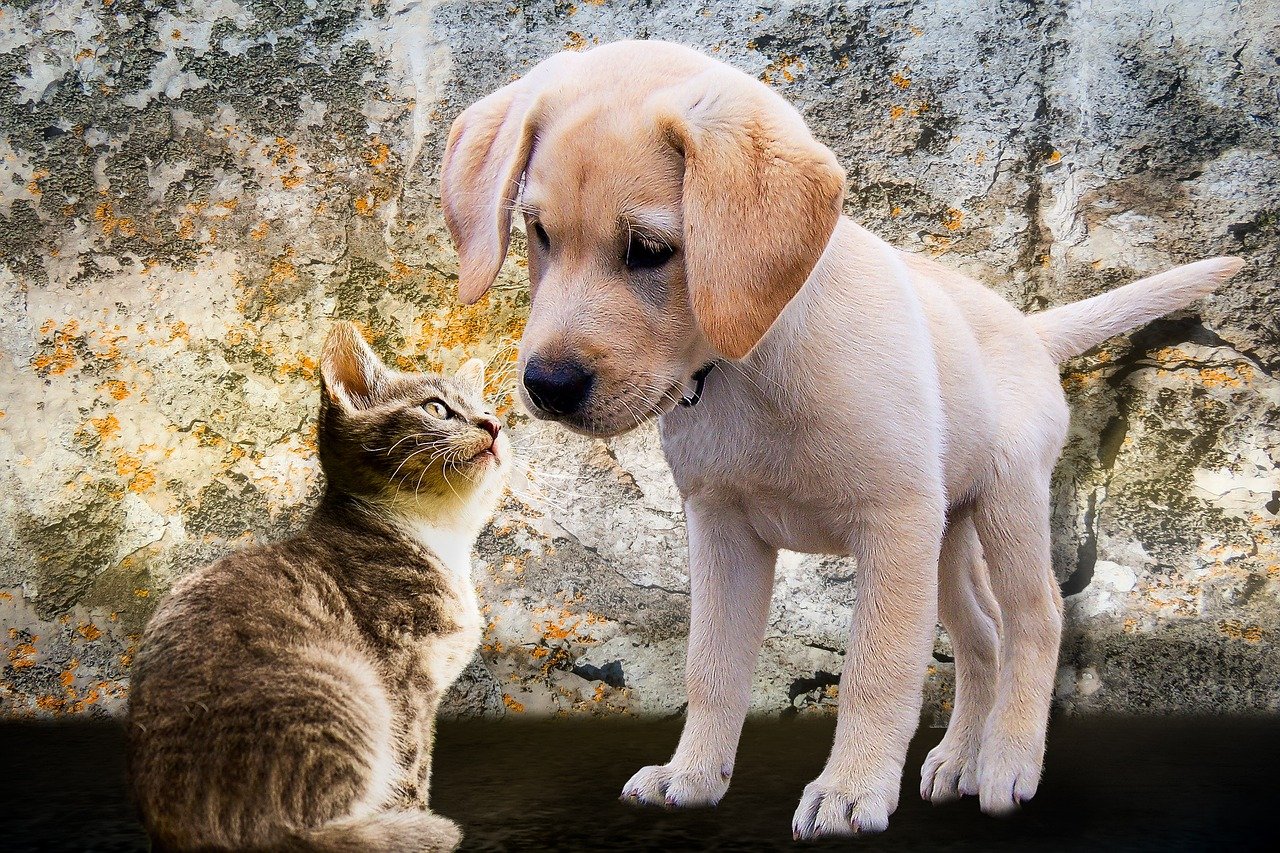
There’s nothing quite like watching a kitten and a puppy tumble across the living room, locked in a goofy wrestling match. Play is the glue that binds these unlikely friends together. Through games of chase, pounce, and tug-of-war, cats and dogs learn about each other’s strengths, limits, and personalities. Sometimes, play gets a little rowdy, but it’s all part of figuring out boundaries. Playtime is also where you’ll see the most hilarious moments—like a dog learning to climb a cat tree or a cat trying to fetch a ball. These playful interactions create joyful memories and deepen the bond between your furry companions.
Sharing Territory Without Trouble
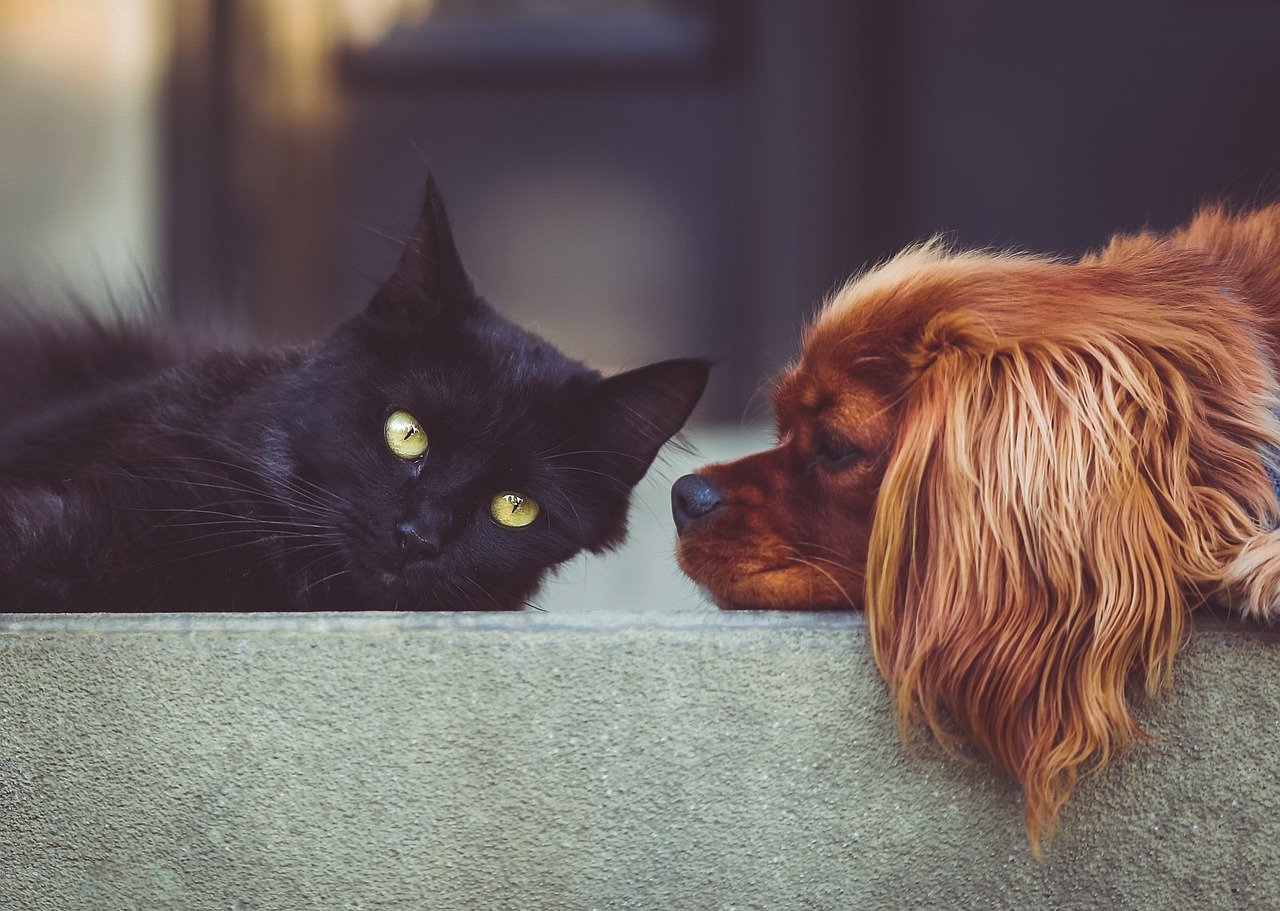
Territorial disputes are common when new animals meet, but growing up together usually makes sharing space much easier. Cats and dogs raised in the same household learn to respect each other’s favorite spots, whether that’s a sunny windowsill or a cozy bed by the fire. They often develop a sense of routine—one might claim the morning sunlight while the other takes the afternoon nap spot. Sometimes, you’ll even catch them swapping places, just to see what the fuss is about. Their willingness to share is a testament to how growing up together can turn potential rivals into true roommates.
Feeding Time: Navigating Mealtime Manners

Meal times can be tricky for mixed-pet households. Initially, a curious puppy might try to sneak a bite from the kitten’s bowl, or a clever cat may swipe a treat from the dog’s stash. Over time, however, most cats and dogs learn to respect each other’s food. Some families choose to feed their pets in separate rooms or at different times to avoid squabbles, while others find that a stern “no” is enough to keep the peace. As they grow, pets pick up on the rules and routines, making mealtime a smooth process. It’s a lesson in patience and respect that benefits everyone.
Sleeping Arrangements: From Solo Naps to Shared Beds
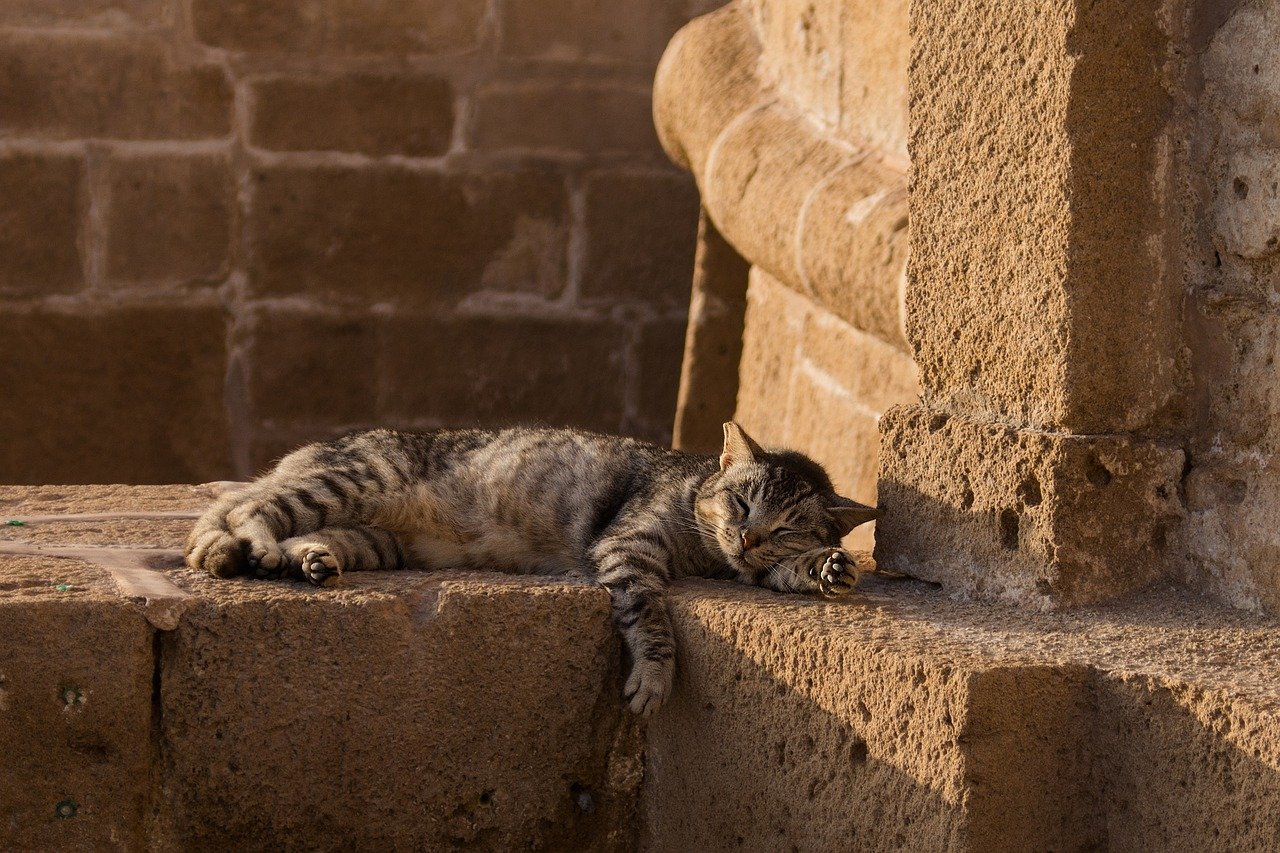
At first, cats and dogs may prefer to nap alone, each seeking out their own comfy corner. But as their bond grows, many start to gravitate toward each other at bedtime. There’s something heartwarming about seeing a cat curled up against a dog’s belly or a dog resting its head on a cat’s back. These shared naps are a sign of deep trust and affection. Of course, not every pair will snuggle, and that’s okay—some friendships are built on quiet companionship rather than physical closeness. Whether together or apart, their sense of security grows from knowing they’re not alone.
Affectionate Gestures: From Head Bumps to Licks

Cats and dogs show love in different ways. Cats might rub their heads against a dog’s leg, while dogs often express affection with a slobbery lick. When these pets grow up together, they learn to accept and reciprocate each other’s unique displays of affection. You’ll notice a dog patiently tolerating a cat’s grooming session or a cat leaning in for a gentle nuzzle. These moments, often missed by outsiders, reveal just how deep the bond between them can go. Each gesture, big or small, becomes a thread in the fabric of their friendship.
Setting Boundaries and Respecting Limits
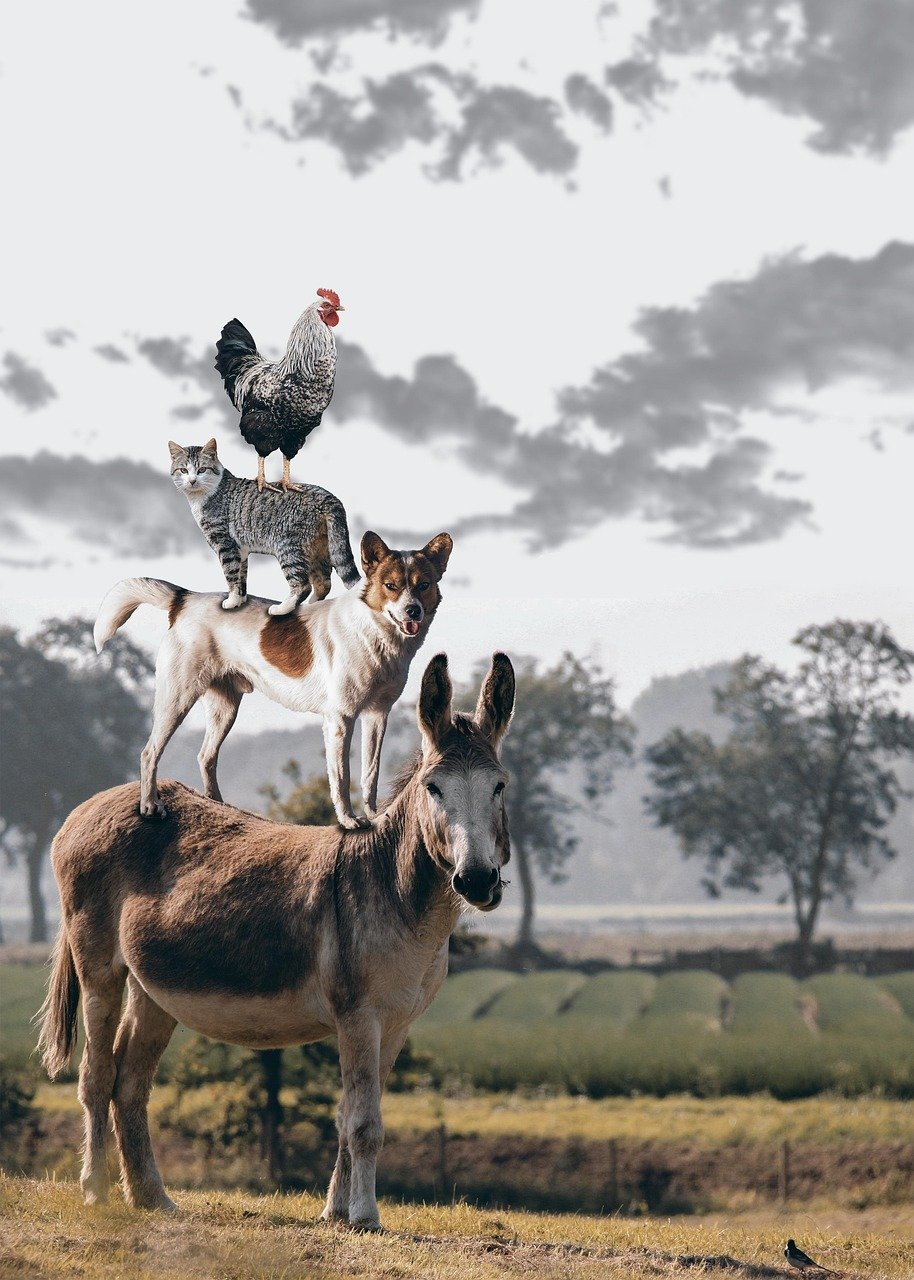
Even the closest friendships need boundaries. Cats are known for their independence, while dogs can be a bit more clingy. When raised together, both learn to set and respect personal space. You might see a cat hissing if a dog gets too close, or a dog backing off when a cat needs alone time. Over the years, these boundaries become unspoken rules. It’s not about winning or losing—it’s about living together peacefully. This mutual respect is a skill that takes time and patience to develop, but it’s one of the most important aspects of their relationship.
Jealousy and Sibling Rivalry

Just like human siblings, cats and dogs can experience moments of jealousy. Maybe the dog gets a new toy, or the cat receives extra cuddles. These small slights can lead to sulking, pouting, or even a playful chase around the house. However, most pets quickly bounce back, often making up with a friendly nudge or playful gesture. With time, they learn that love and attention aren’t limited resources. The occasional spat is natural, but the underlying affection always shines through. It’s all part of growing up together and figuring out how to share a family.
Health Benefits of Growing Up Together
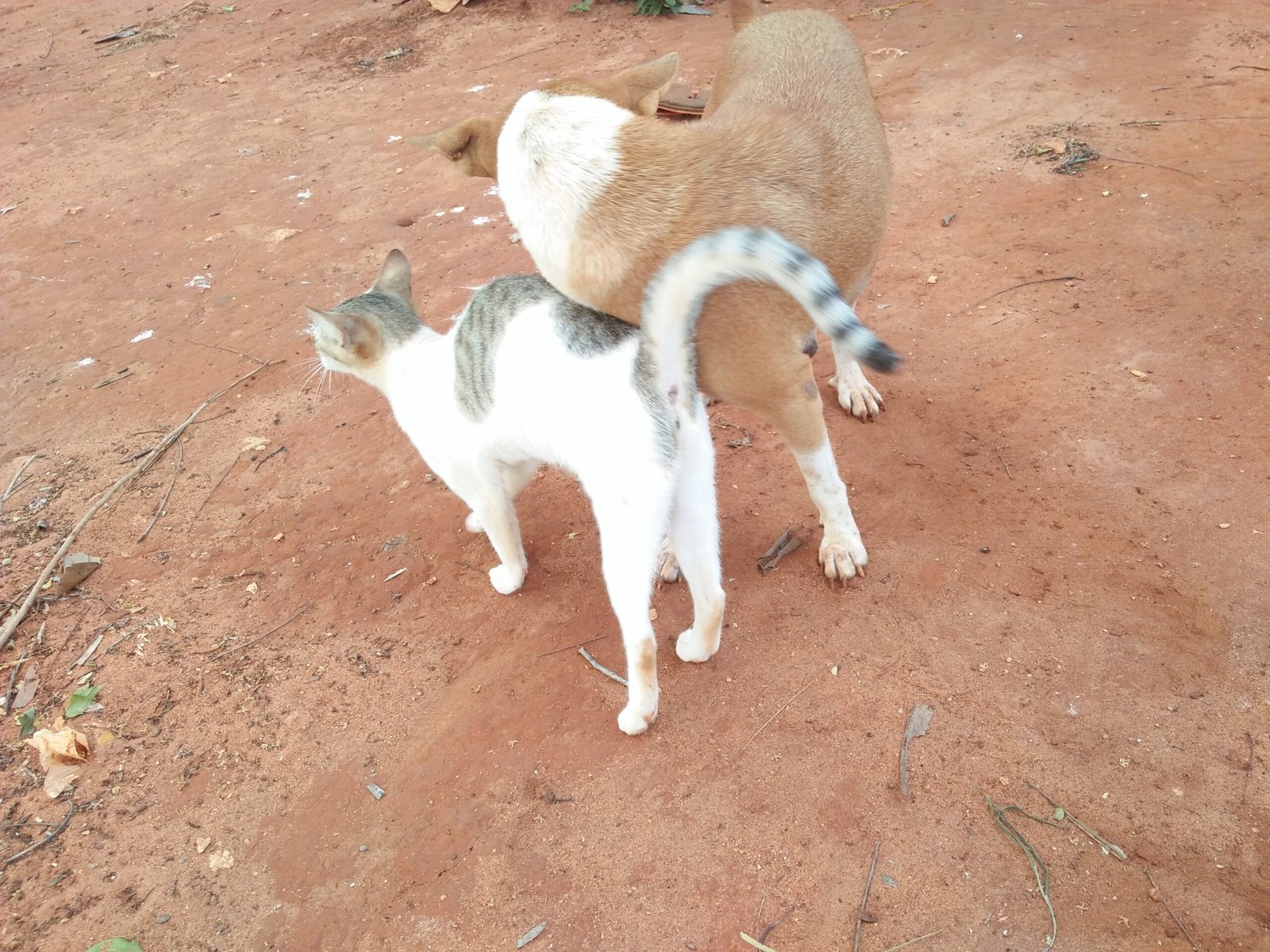
Believe it or not, there are real health benefits for pets raised together. Frequent play keeps them active, helping prevent obesity and related health issues. The companionship reduces stress, making anxiety and depression less likely. Some studies even suggest that pets who live with other animals have stronger immune systems. Watching a cat and dog encourage each other to explore, play, and relax is a reminder that friendship is good for the soul—and the body. It’s a win-win for pets and their humans.
Overcoming Fear and Building Confidence
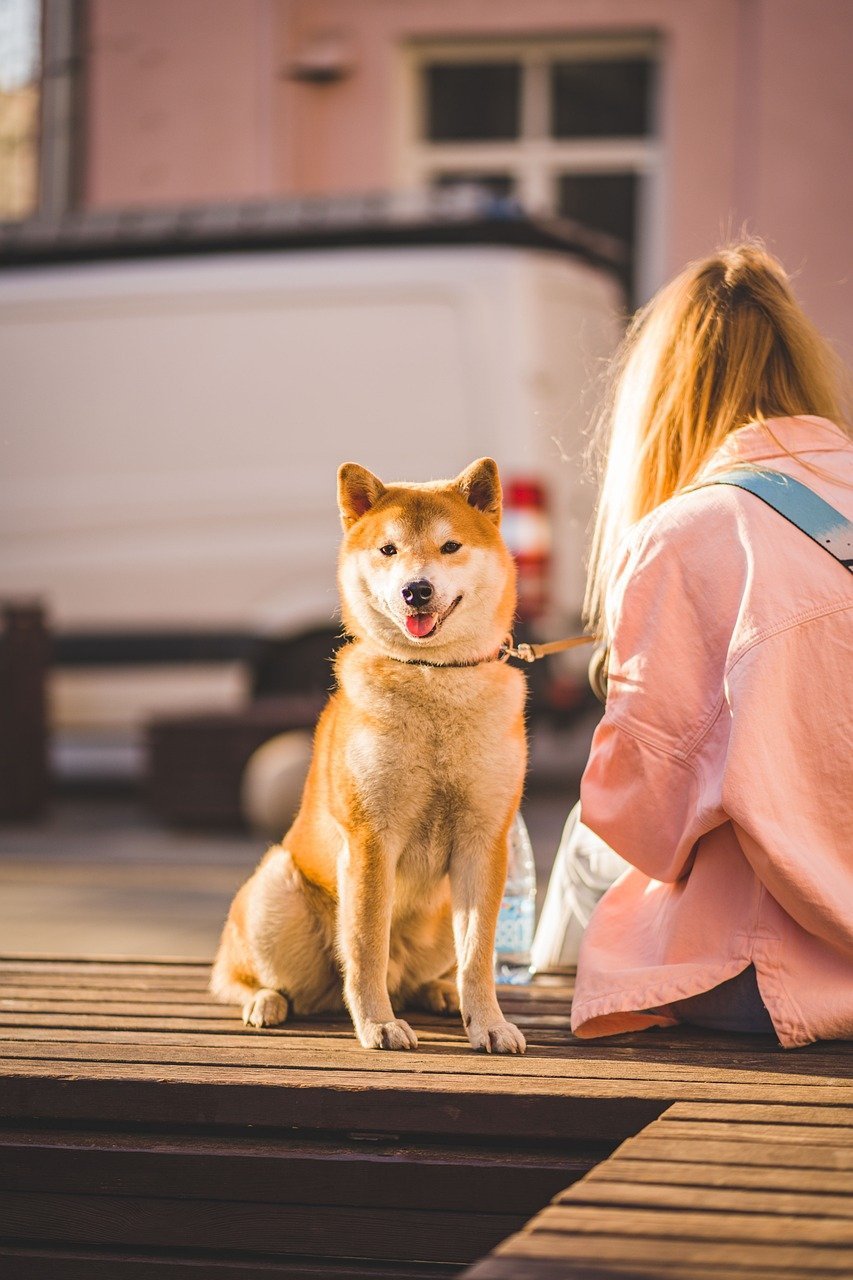
A shy kitten or nervous puppy can gain tremendous confidence from growing up with a friend. Cats may take cues from confident dogs when meeting strangers or encountering new situations, while dogs can learn to be more independent by watching cats. This shared growth helps both animals develop into well-rounded, adaptable adults. Over time, their fears fade, replaced by curiosity and courage. It’s inspiring to watch a once-timid pet blossom into a bold explorer, all thanks to their unlikely friendship.
Training Together: Double the Fun, Double the Challenge

Training a cat and dog at the same time can be a wild ride. Dogs often respond well to commands and positive reinforcement, while cats can be a bit more stubborn or independent. Yet, when they see each other learning new tricks or following rules, they can become more eager to participate. Sometimes, a dog’s enthusiasm motivates a cat, or a cat’s cleverness inspires a dog to try harder. Training sessions become moments of teamwork—and sometimes, a little friendly competition. It’s a lesson in patience for humans, but the results are often well worth the effort.
Watching Over Each Other: The Protective Instinct

There’s something remarkable about the way cats and dogs look out for each other. A dog might bark to alert their feline friend to danger, or a cat might stand guard while the dog naps. These protective instincts develop over time, turning into a unique form of sibling care. It’s not uncommon for a dog to comfort a scared cat during a thunderstorm or for a cat to check on a sick dog. These small acts of kindness reveal the deep bonds that can form when pets grow up side by side.
Adapting to Change Together

Life is full of changes—moving to a new house, welcoming a baby, or adding another pet to the family. When cats and dogs grow up together, they often find comfort in each other’s presence during these big transitions. They become each other’s anchor, providing familiarity and reassurance. Watching them stick together through life’s ups and downs is a testament to their resilience. Their partnership makes it easier to face new challenges, whether it’s a noisy construction project or a holiday trip.
Emotional Support and Companionship

The emotional connection between cats and dogs who grow up together can be surprisingly deep. They provide comfort during stressful times, offer companionship during lonely moments, and celebrate happy occasions with shared excitement. Many pet owners notice their cat and dog seeking each other out during thunderstorms, fireworks, or even routine vet visits. Their ability to sense each other’s moods and respond with empathy is nothing short of touching. It’s a reminder that friendship knows no boundaries—not even species.
Influencing Each Other’s Habits and Behaviors

Growing up together means cats and dogs often pick up each other’s habits, for better or worse. You might notice a cat learning to play fetch or a dog mastering the art of climbing onto high shelves. Sometimes, they even synchronize their sleep schedules or develop similar preferences for toys. This cross-species influence is a testament to their adaptability and intelligence. It’s also a reminder to watch for mischief—two clever pets can get into twice as much trouble when they put their heads together!
Forming Lifelong Friendships
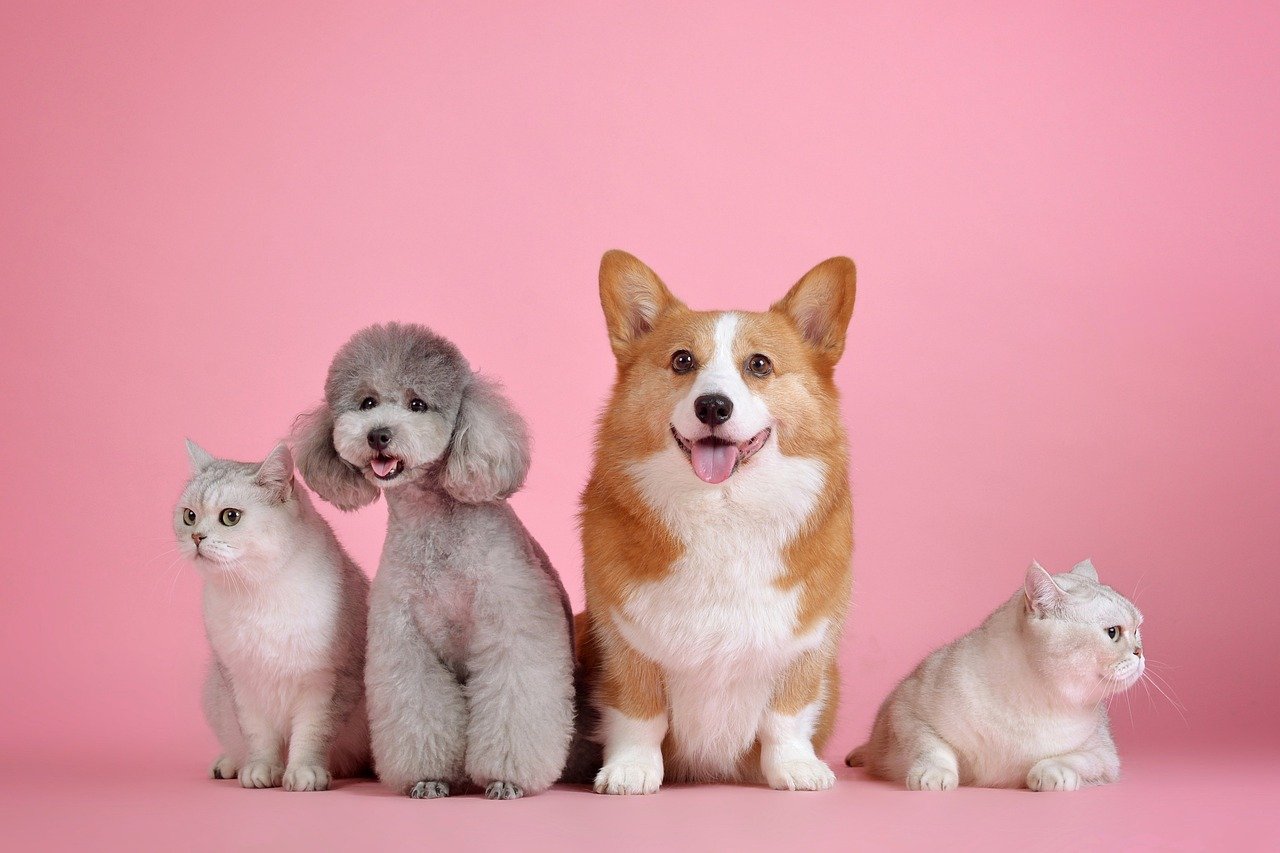
The bond formed between a cat and dog raised together often lasts a lifetime. They share countless experiences, from playful adventures to quiet afternoons. Even as they grow older and slow down, their connection remains strong. It’s not unusual for older pets to look out for each other, sharing warmth and comfort during their golden years. These lifelong friendships enrich not only the pets’ lives but also the lives of their human families. Watching them together is a daily reminder of the power of love and loyalty.
Challenging Our Expectations

Perhaps the greatest lesson from watching cats and dogs grow up together is how they constantly challenge our expectations. They show us that friendship is possible, even between the most unlikely of companions. Their daily interactions—sometimes silly, sometimes heartwarming—remind us that differences can be strengths, and that love doesn’t follow rules. For anyone who has ever doubted whether cats and dogs can truly get along, seeing them play, nap, and care for each other is proof enough.
Human Lessons from Furry Friends

Living with a cat and dog who have grown up together teaches us more than we might realize. Their ability to forgive, adapt, and love unconditionally offers lessons for us all. We see firsthand how patience and understanding can overcome differences, and how the bonds we form can change our lives. Their friendship is a daily source of inspiration and joy, bringing laughter and comfort to their human families. In a world often divided by differences, their story is a reminder that true companionship can be found in the most surprising places.
Hi, I’m Bola, a passionate writer and creative strategist with a knack for crafting compelling content that educates, inspires, and connects. Over the years, I’ve honed my skills across various writing fields, including content creation, copywriting, online course development, and video scriptwriting.
When I’m not at my desk, you’ll find me exploring new ideas, reading books, or brainstorming creative ways to solve challenges. I believe that words have the power to transform, and I’m here to help you leverage that power for success.
Thanks for stopping by, Keep coming to this website to checkout new articles form me. You’d always love it!






